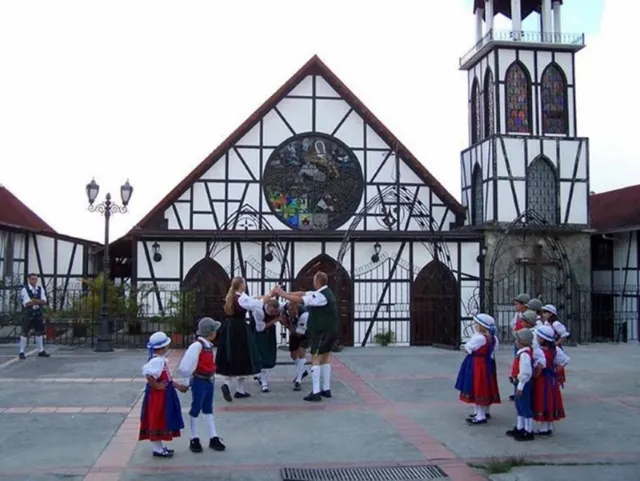Hi @chriddi
(I have to use English as a language because I know nothing at all about German, luckily I was able to make use of a translator and understand your post).
From what I can see working with wool is usually somewhat complex, I wonder how much time must have been spent in the course of history to get to what we currently have as dress or clothing.
I see that you enjoy a nice natural lifestyle, which I think is special, and that you can enjoy that radiant sunshine that you see in the last image, is special.
The videos you post on YouTube can sometimes be a guide, for some things in particular, I particularly use them sometimes to watch tutorials, and they have helped me a lot.
The images you show of the women dressed in their traditional costumes reminded me of a town in Venezuela, I don't know if you know of its existence, it is called "Colonia Tocar", it is literally a German colony, where all the infrastructure is unique to the area, and the attention is special, the locals wear costumes similar to the ones you show in the photo of the women weavers.
Colonia Tovar is almost 200 years old and was founded in Venezuela by a group of Germans. :-)

Thank you so much for your detailed comment. Unfortunately, I was confined to bed with fever for three days, so I couldn't take care of Steemit at all. And you know what? This is also very good for a change... ;-)
Yes, wool processing is very laborious. It's very, very satisfying work: you really learn to value textiles more. The "cheap" T-shirts just don't grow on the shelves....
Hihi, that's right, the Cologne folklore dancers remind me a bit of the show spinners. This is mainly due to the headgear and apron. I now know why the ladies wear aprons: when you wash, you already sort out a lot of dirt, and when you comb, a whole lot more dirt falls out of the wool. So it's unbelievable that when you're spinning, you also get a lot of dirt crumbling onto your lap!
Curated by : @petface